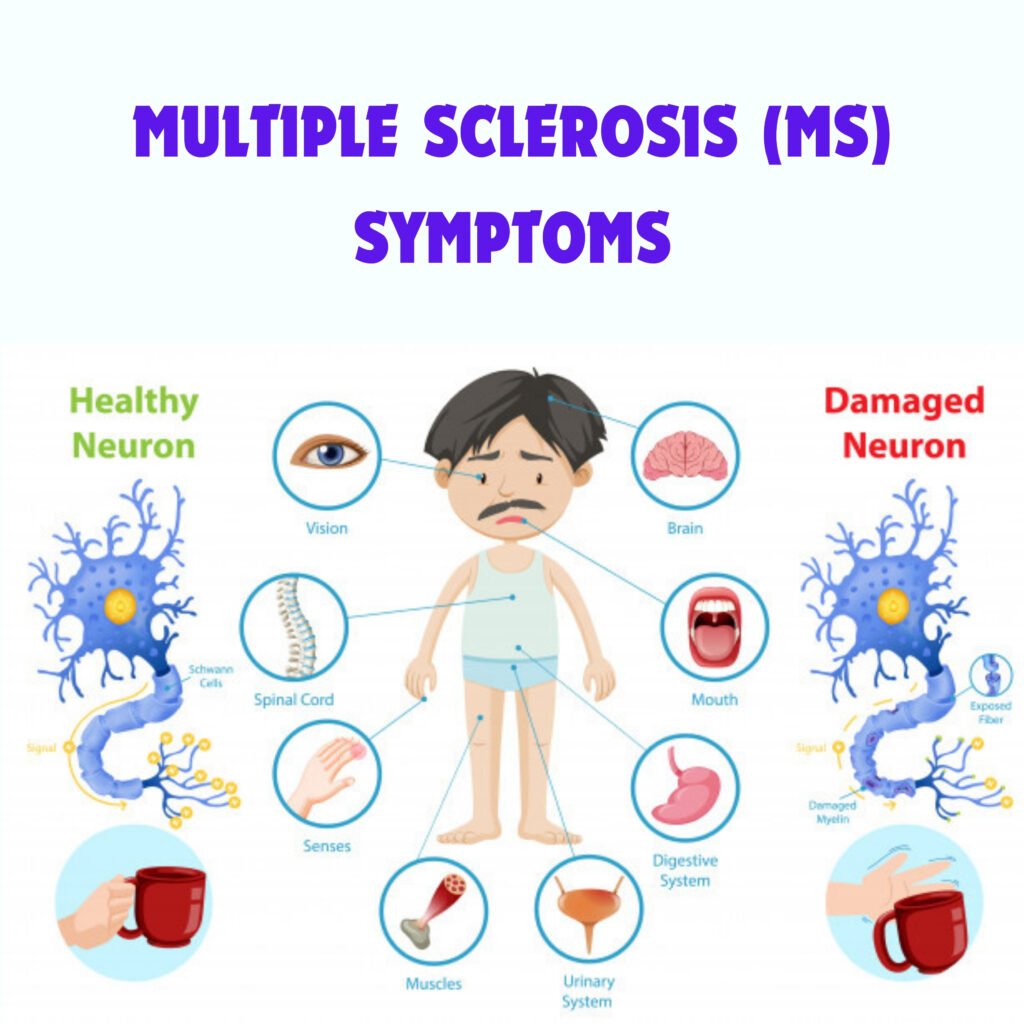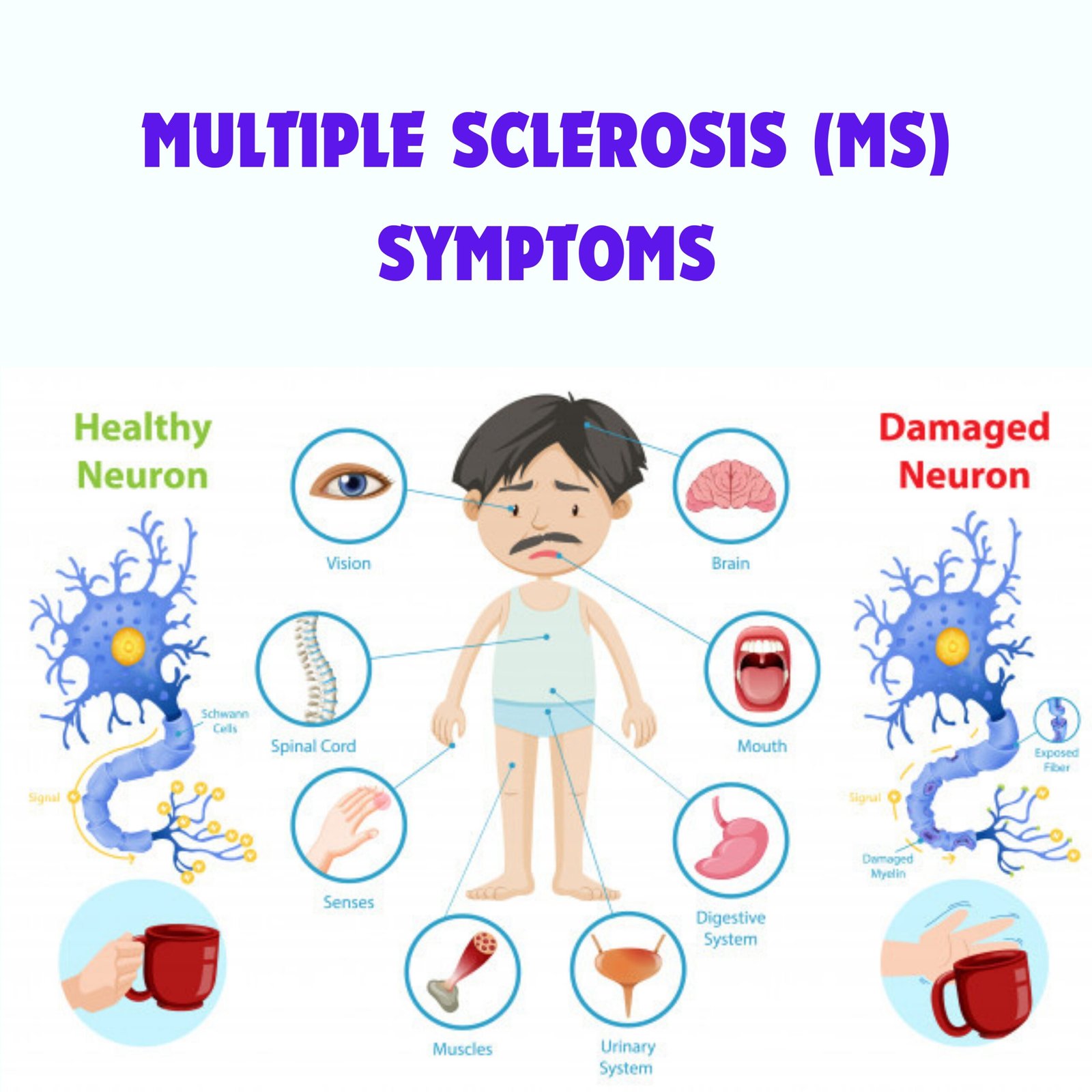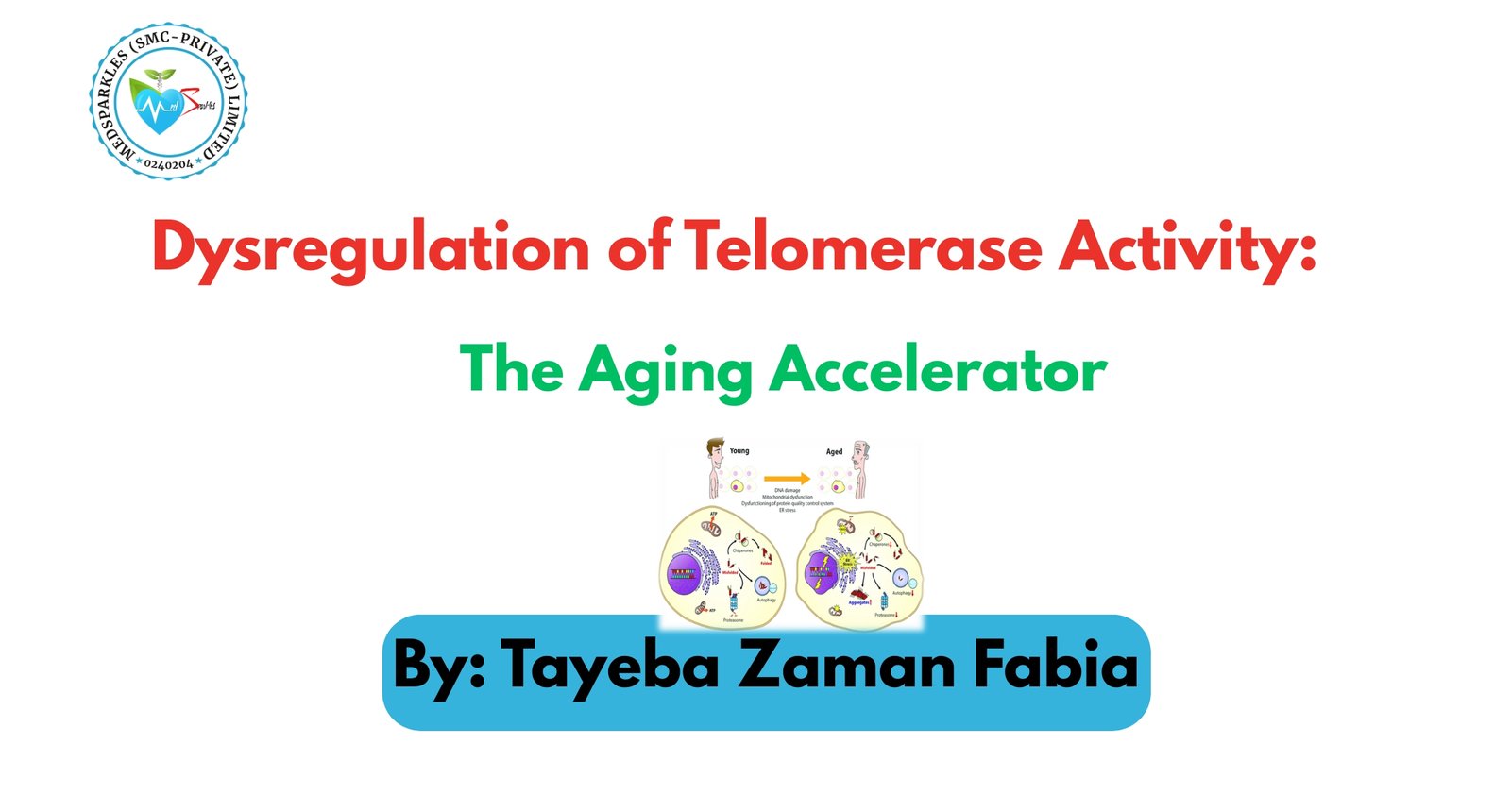“Disease can be rarely eliminated through early diagnosis or good treatment, but prevention can eliminate disease” – Denis Parsons
It is estimated that there are more than 10,000 diseases identified till now and according to National Institute of Health (NIH) more than 7,000 diseases are rare diseases among them. One of them discussed below is multiple sclerosis (MS).
Multiple sclerosis (MS) is thought to be chronic autoimmune disease that affects the central nervous system (brain and spinal cord). It takes place when the immune system mistakenly attacks the protective covering (myelin sheath) of nerve fibers, which leads to communication problem between the brain and rest of the body parts, ultimately causing lifetime damage or deterioration of the nerve fibers.
TYPES OF MS: there are four types of multiple sclerosis depending on the symptoms;
- Clinically isolated syndrome (CIS): When it is the first and beginning stage of MS
- Relapsing- remitting multiple sclerosis (RRMS): Around 85% of people with MS have this type. In this type relapses or attacks occur
- Secondary progressive multiple sclerosis (SPMS): RRMS progresses to SPMS with worse symptoms
- Primary progressive multiple sclerosis (PPMS): The symptoms worsen over the time in this type
SYMPTOMS OF MS: The symptoms of multiple sclerosis can vary as each person is affected differently, although it has wide range of symptoms affecting any part of the body. Most common symptoms include

- Lack of coordination
- Tingling
- Fatigue
- Weakness in one or more limbs
- Inability to walk
- Vision problems ( this is the first noticeable symptom)
- Muscle spasms, stiffness
- Bowel problems
- Sexual problems
- Mobility problems and clumsiness
- Speech difficulties
- Mood disturbances
- Pain (people with MS can take 2 types of pain; neuropathic pain and musculoskeletal pain)
CAUSE OF MS:
Multiple sclerosis (MS) occurs when immune system mistakes nerve fiber (myelin sheath) as foreign substance and attacks it and thus it becomes inflamed in small patches causing disturbance in communication and signal transfer by slowing them down or by stopping them completely. When the inflammation goes away it leaves behind scaring of nerve sheath called as sclerosis.
However, there is no exact cause for this disease and why immune system choose to attack myelin sheath.
RISK FACTORS: Following factors increase the risk of progressing multiple sclerosis:
- Sex: Women are 2 to 3 times more likely to have MS than men.
- Age: People around the age of 20-40 are likely to have MS, however people younger or older can also be affected.
- Genes: a gene on chromosome 6p21 has been found to be linked with multiple sclerosis.
- Family history: although MS is an autoimmune disorder but if one of the person’s sibling or parent has MS, that person has higher chances of developing the disease.
- Environment: temperate climate countries like Canada, northern US, New Zealand, Australia and Europe have risk of getting MS.
- Vitamin D: low exposure to sunlight or low level of vitamin D can lead to multiple sclerosis.
- Person having certain autoimmune disease: if any person has other autoimmune disease like pernicious anemia, type 1 diabetes, thyroid disease and inflammatory bowel disease, he/she has higher risk of getting MS.
DIAGNOSIS OF MS: If a person is suspected to have MS, they may be recommended to talk to neurologist who will treat the conditions of brain and spinal cord according to the type and symptom. However there are no particular tests for diagnosing multiple sclerosis but through examining the person medical history health care provider may refer some tests such as;
- MRI TEST
- BLOOD TEST
- A LUMBAR PUNCTURE
- EVOKED POTENTIAL (EP) TEST
- AN OPTICAL COHERENCE TOMOGRAPHY (OCT) TEST
TREATMENT OF MS: There is no cure for multiple sclerosis but treating it with various methods may prevent further damage, manage the severity of symptoms and prevent complication. Some of the methods for treating multiple sclerosis includes;
- Medications: medication for multiple sclerosis reduces the worsening of symptoms. It includes
- Corticosteroids: such as oral prednisone and intravenous methylprednisolone are recommended for reducing inflammation in the nerve fibers.
- DMTs(disease modifying therapies) for MS:
- Injectable into skin: beta interferon, glatiramer acetate of atumumab, monoclonal antibodies
- Infusion into the vein: natalizumab, rituximab, ocrelizumab and alemtuzumab
- Oral treatments: diroximel fumarate, dimethyl fumarate, cladribine, teriflunomide and monomethyl fumarate
- Stem cell transplant
- Physical therapy: physical therapies consists of kinesiotherapy, exercise rehabilitation, massage and hydrotherapy which helps in maintaining strength and general fitness in MS.
Prevention of MS: although multiple sclerosis is incurable disease currently but there are some preventions of every disease we face, it helps in avoiding the suffering and complications that come with being sick. Health care providers may suggests following preventive measures;
- Getting plenty of sleep: a person must make sure to get best possible sleep against sleep disorders in multiple sclerosis.
- Eating nutritious diet: some experts suggest to intake a healthy and balanced diet to reduce the symptoms of multiple sclerosis concerned with food.
- Physical activity/ exercise: to reduce the symptoms of numbness of muscles, spasms or mobility an exercise is necessary for improving muscle strength and coordination.
- Quit smoking: people who smoke are advised to quit as it contains tobacco which further worsens the symptoms.
REFERENCES:





